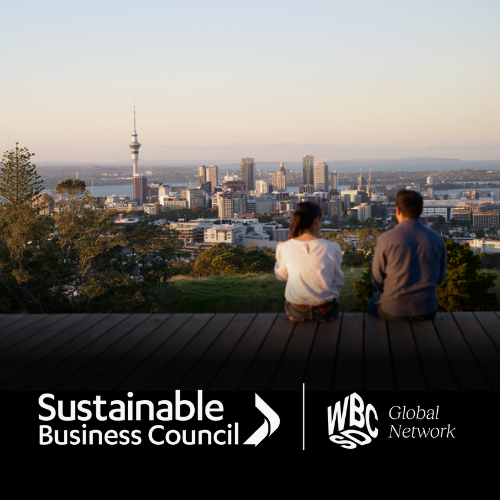Transcript
Kia ora tatou, i’m Rod Oram and greetings from Glasgow. It’s my very great pleasure to bring to you SBC members the first of three video reports for you from the COP26 climate negotiations.
In this first week of negotiations, it’s government officials doing the work, in our case led by our climate ambassador Kay Harrison from MFAT. Then in the second week, the politicians step in to take the negotiations further and hopefully to useful conclusions, and of course in our case that’s James Shaw our climate minister. In the second week, and typically even down to the last 36 hours or so of COP, is where the big hard political decisions are made under the intense pressure of the immovable finish time, which in the case of this COP is midnight on Friday November the 12th.
Some big new initiatives have already been launched – most importantly for us the US and EU led alliance to cut methane emissions by 30% by 2030.
Well over 100 countries have signed up to it including New Zealand the big push by the alliance is on reducing methane emissions from the oil and gas sector, because there are many actions that that sector can take rapidly.
Agriculture is actually the biggest source of methane emissions, about 42 percent of them – oil and gas is about 32 – and there is going to be an increasing emphasis on those emissions, not just from ruminant animals but crucially from the likes of rice paddies too in that agricultural sector. So there will be a much bigger emphasis on transforming land use and farming systems, not only to reduce methane, but also to reduce nitrogen and phosphorus-based artificial fertilisers which are themselves pollutants and to help ecosystems and biodiversity to recover
Currently there are hopes for progress on many political issues, particularly for concluding the Article Six rule book which would then operationalize the Paris agreement. But the really big failure of the nationally determined contributions – each country’s climate pledge – is the really big issue on the table. So despite some big increases in ambitions in recent days, particularly from India for example, those contributions still would add up to a 2.5 degree centigrade rise in temperature. So the rallying cry here now is very much “keep 1.5 alive” is that is the phrase, by ratcheting up ambitions very quickly post COP in the next year or two but still do look here at COP for further shifts towards that one and a half degree goal.
While the politicians are at work, civil society is having a true hui for humanity, so that’s the second big players on the scene here so the range of events, pavilions and exhibitions, new programs and almost every other sort of activity you can imagine, and some you probably can’t, are underway here intensely focused on these climate issues.
From a business point of view for example, the newly announced Glasgow Financial Alliance for Net Zero, co-chaired by Mark Carney, a former governor of the Bank of England and now the UN’s Special Envoy on Climate Action And Finance and announced that it has lined up US 130 trillion dollars of finance towards net zero transition with that sum collectively pledged by 450 business sector entities across 45 countries, that is for example not just companies or banks but the likes of institutional investors as well.
One of the leading organizations for driving business change is the UK based but global We Mean Business network of which of course SBC is a member. Crucially its rallying call is “we’re all in for 1.5 degrees C” and indeed an increasing number of its corporate members, though from still a relatively modest base, are committing their transformation strategies to the three utterly core principles of one, emission reductions that are consistent with one and a half degrees centigrade, two, counting those emissions on the basis of scope 3, that is across the entire value chain from suppliers at one end to consumers at the other and indeed post consumers in terms of waste, and then setting and monitoring for delivery, those goals using science-based targets so those three core principles.
So I hope this video report gives you a sense of the very high climate ambitions and commitments here in Glasgow, but huge issues to solve over the next 10 days, it’s going to be completely extraordinary time, and I very much look forward in my second video report to you to describing some more fascinating aspects in this little village we’ve got going here, this little global village of 25,000 people and far more importantly, telling you about the substantial progress towards tackling our co-crises, our interdependent crises, of climate breakdown and ecosystem degradation.

